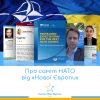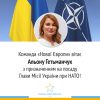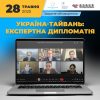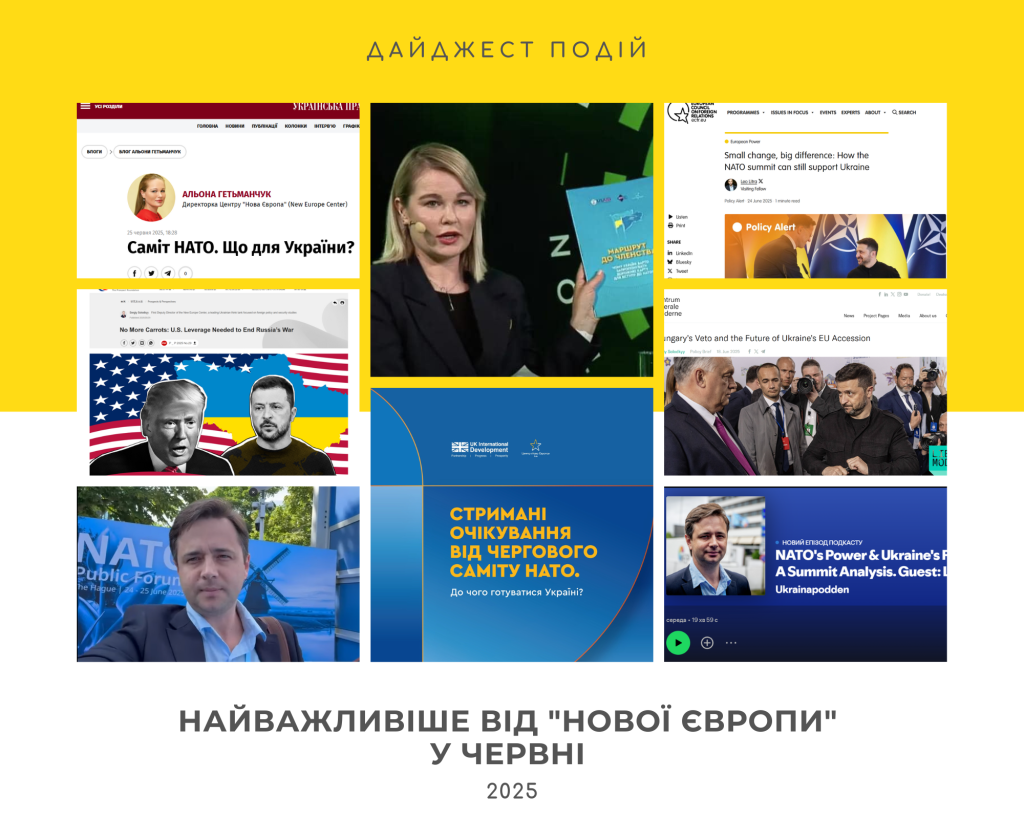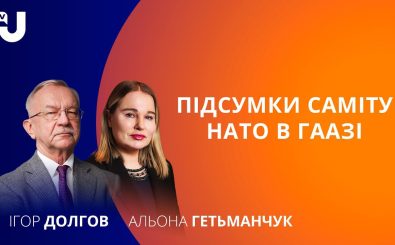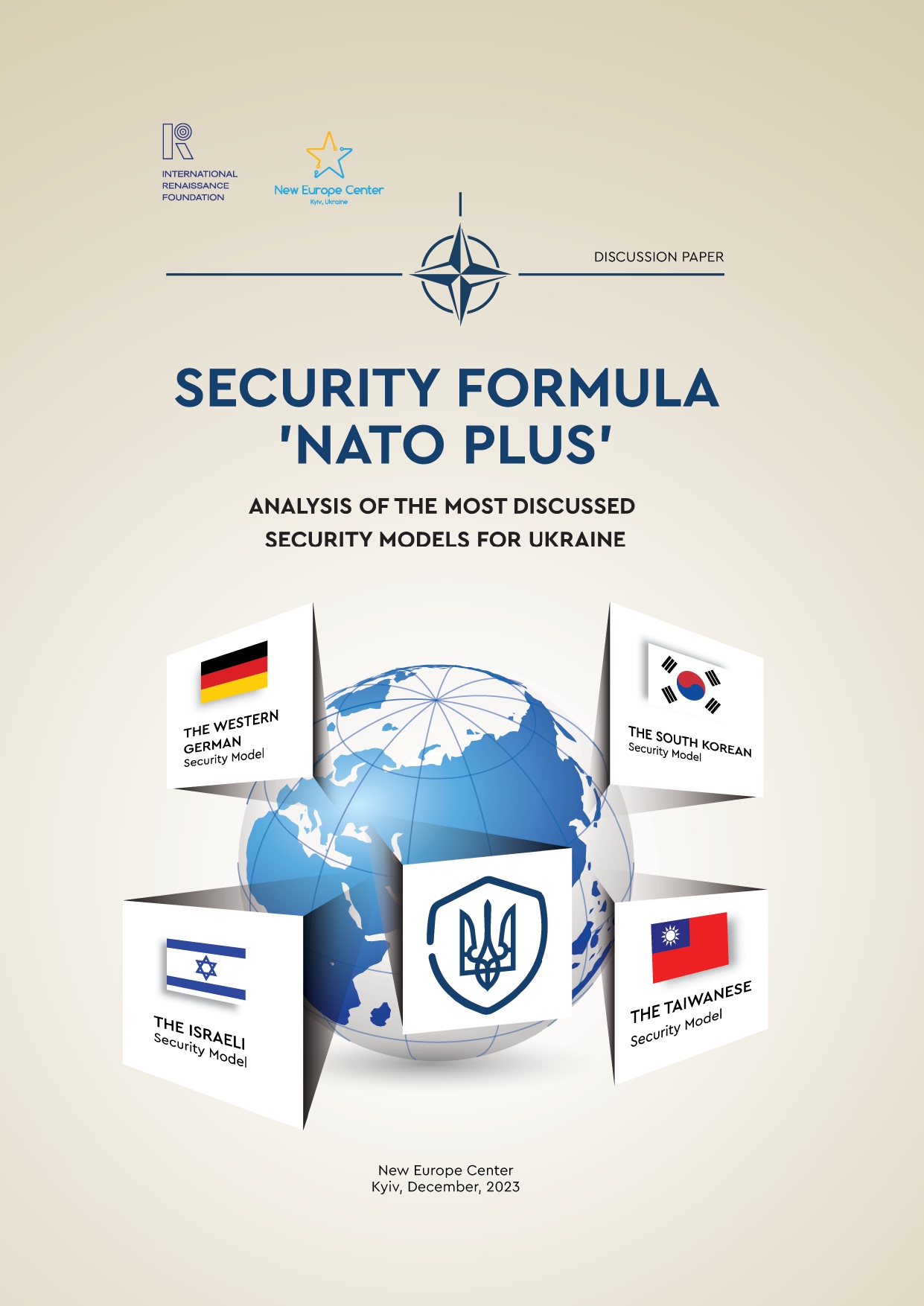
One of the inalienable elements of sustainable peace in Ukraine and Europe is ensuring the sustainable security of Ukraine. In Ukraine itself, a political and social consensus has been formed that such security can be ensured only through Ukraine’s NATO membership, and support for joining NATO remains at a very high level in Ukrainian society (at around 80%). Moreover, the vast majority of Ukrainian citizens consider NATO membership to be more important than EU accession. Despite vigorous discussions and even some attempts to implement various security models in practice, Ukrainians consider NATO to be the most reliable security model for Ukraine.
At the same time, the lack of alternatives to NATO membership does not imply the impossibility of discussion, let alone the inclusion of certain elements of other security models at the stage preceding accession to the Alliance and even after joining it. In this case, we can discuss the development of the “NATO Plus” model for Ukraine.
In its new analytical discussion paper on security options for Ukraine, the New Europe Center is aiming to answer several questions at once:
– Why does Ukraine remain so committed to the idea of NATO membership as the most reliable or even the non-alternative security model?
– What is the basis of Ukraine’s conviction that the issue of invitation to join NATO and developing an algorithm for Ukraine’s accession to it should be the agenda of its dialogue with the Alliance even in the conditions of an ongoing war?
– What elements of other security models can Ukraine “borrow” before or even after joining NATO?
In order to answer these questions in a more comprehensive manner, our experts have carried out an in-depth analysis of several security models that are most often brought up in international discourse – both at the level of the political establishment and in the media. More specifically, we have analysed at length four security models, to wit: South Korean, Israeli, Taiwanese and West German (gradual NATO accession).
Key findings
- All the existing security models are closely linked to the United States, but the US did not immediately agree to them. Most of the models analysed demonstrate that it took time and incredible diplomatic efforts to convince Washington to implement models that today, many decades after their launch, look quite natural or even initiated by Washington.
- Moscow was always against it, but fear did not overcome Washington. Many security models were put into practice in conditions of stiff opposition from the Kremlin, but the White House and other Western capitals summoned enough courage to implement a decisive policy.
- Ukraine is offered “defective” models. When Western politicians, diplomats or experts discuss one of these models as the most relevant for Ukraine and even as an alternative to NATO, they usually offer a modified version of the model – its pared-down or shortened version.
- Own army and military industry. Despite the security guarantees from the US (in the case of South Korea), NATO membership or the de facto allied nature of security cooperation (Israel and Taiwan), each of the countries concentrated on building up its own army and military-industrial complex (MIP), particularly thanks to financial support of the US and economic development, which coincided – apparently, not by chance – with the improvement of the security environment.
- Price matters. The introduction or enhancement of each security model in the United States (and its allies) has been largely driven by financial considerations — evaluating the cost of a particular model and finding ways to optimise it without compromising its effectiveness.
- Israel is good, but NATO is better. A nationwide opinion poll conducted by Info Sapiens on behalf of the New Europe Center in November 2023 showed that Ukrainians, among all proposed security models, have the most favourable attitude towards NATO, even if the protection under Article 5 is gradually extended (essentially referring to the Western German model).
The full text of discussion paper is avialable here.
The discussion paper is also kindly published by Mirror of the Week (Ukrainian).
Authors: Alyona Getmanchuk, Director, New Europe Center, Leonid Litra, Senior Fellow, New Europe Center, Nataliya Butyrska, Expert on East Asia, Yurii Poita, Visiting Research Fellow at the Taipei-based Institute for National Defense and Security Research (INDSR), Sergiy Solodkyy, First Deputy Director, New Europe Center.
The material was prepared with the support of the International Renaissance Foundation. The material reflects the position of the authors and does not necessarily coincide with the position of the International Renaissance Foundation.



